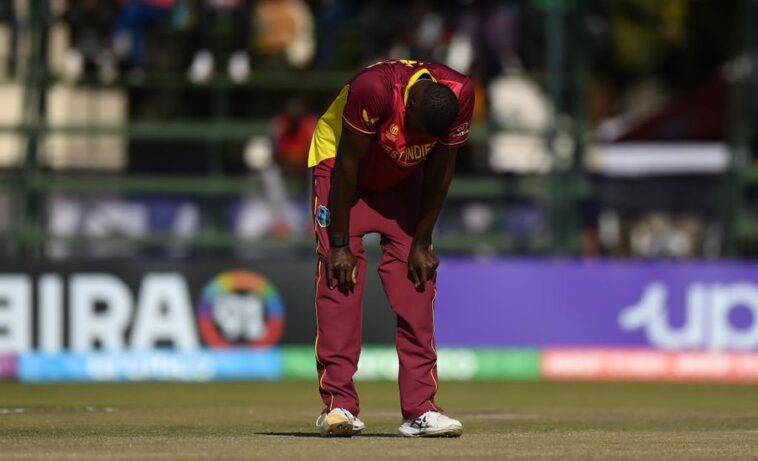Scotland defeated the West Indies by seven wickets in Harare during the ICC Cricket World Cup Qualifiers 2023 on July 1, shattering their hopes of qualifying for the World Cup. The team led by Shai Hope entered the Super Sixes stage with no points after losing to Zimbabwe and the Netherlands in the group stage. Therefore, the Windies needed to win all three Super Sixes games to remain in the competition.
However, much to their dismay, Scotland defeated them comprehensively. Following West Indies’ poor performance in the tournament, Hope stated that the team must concentrate on a number of things and cannot expect to be a great team overnight.
“It all begins with the foundation. Preparation must be improved. That is from the homeland. Therefore, it begins there. We cannot simply wake up one day and expect to be a wonderful team. There are numerous matters that require our attention. Additionally, we must control (what we can control). Hope stated in the post-match presentation, “Right now, we are here playing cricket, and we need to make sure we give our all to the West Indian fans.”
The West Indies captain added that with two games remaining, his team will aim to end the tournament on a high note.
“We are aware there are two games remaining. We must find a means to recover and finish the tournament on a high note. “The only way we can rise in the rankings is if we translate our talent into consistent performances,” he continued.
 Scotland put the West Indies in to bat first, and Brandon McMullen (3/32 in 9 overs) wrought havoc with the ball as the West Indies were reduced to 30/4. They were reduced to 81/6 with Hope (13) and Nicholas Pooran (21) back in the hut as inform batsmen.
Scotland put the West Indies in to bat first, and Brandon McMullen (3/32 in 9 overs) wrought havoc with the ball as the West Indies were reduced to 30/4. They were reduced to 81/6 with Hope (13) and Nicholas Pooran (21) back in the hut as inform batsmen.
Also See | If I would have played for India,I have taken 1,000 wickets: Saeed Ajmal
West Indies has two remaining matches against Oman and Sri Lanka.
The 77-run partnership between Jason Holder (45 off 79 balls) and Romario Shepherd (36 off 43 balls) enabled them to reach 181/10 in 43.5 overs. Matthew Cross (74* off 107) and McMullen (69) helped Scotland chase down the target in 43.3 overs to win the match by seven wickets in the second innings.
West Indies have two remaining matches in the tournament, against Oman on 5th July and Sri Lanka on 7th July, to salvage some dignity after their ignominious loss.




